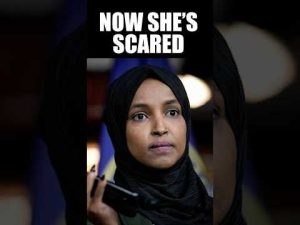**The Father Factor: A Conservative Look at Family Dynamics in America**
In today’s society, the role of family, particularly the presence of fathers, is often at the forefront of discussions surrounding community and crime, particularly in the Black community. The dynamics at play are complex, and while some argue that systemic issues drive a wedge between fathers and their families, others believe that the root of the problem lies in cultural attitudes and values. Let’s take a deep dive into this highly charged subject, exploring the implications of fatherhood and family stability in America.
The point was raised that many Black children grow up without fathers, which often leads to a discussion about the contributing factors. Some folks argue that systemic racism plays a significant role in these family structures, suggesting that poverty and unequal treatment under the law leave many Black men with fewer options, ultimately influencing their choices. However, when looking at the broader picture, it appears that the absence of fathers can’t be attributed solely to economic hardship or racism. After all, many immigrant families, regardless of ethnicity, manage to remain intact and build productive lives against the odds.
One of the heart-wrenching realities is that children without fathers often face a different set of challenges compared to those who grow up in two-parent households. Studies and historical data consistently show that having an involved father can significantly impact a child’s development, education, and even future criminal behavior. It makes one wonder: if fathers are central to family stability, why isn’t the conversation about fatherhood at the heart of discussions on crime in the Black community?
Interestingly enough, even former President Barack Obama highlighted the importance of fathers in his campaigns, underscoring the idea that rekindling fatherly roles could lead to more vibrant communities. So, if there’s bipartisan recognition of fatherhood’s significance, why aren’t these discussions on parenting and family values happening more frequently on the national stage? Instead, the focus appears to shift toward discussing systemic issues or social injustices, often overlooking the value of family structure and shared responsibilities.
To turn the conversation back to crime, it is essential to recognize that while poverty undoubtedly affects people across racial lines, not all those in poverty resort to crime. There are numerous factors at play, including individual choices, community resources, and cultural expectations. While some may argue that societal structures encourage certain behaviors, many conservative voices propose that solutions lie within families themselves. Encouraging the presence of fathers, promoting responsibility among young men, and fostering a culture that values intact families could serve as a more constructive path to addressing the issue of crime, rather than merely attributing it to external factors.
In conclusion, the dialogue surrounding fatherhood is not just a discussion about Black America; it’s a critical conversation for all communities. By acknowledging the value of strong family units and the role fathers play, society can better understand the factors contributing to crime and instability. The challenges may be many, but ultimately, reinforcing familial bonds could lead to a more prosperous future for everyone. As this discourse unfolds, it’s worth pondering how a focus on family values might transform communities and change lives for the better.







